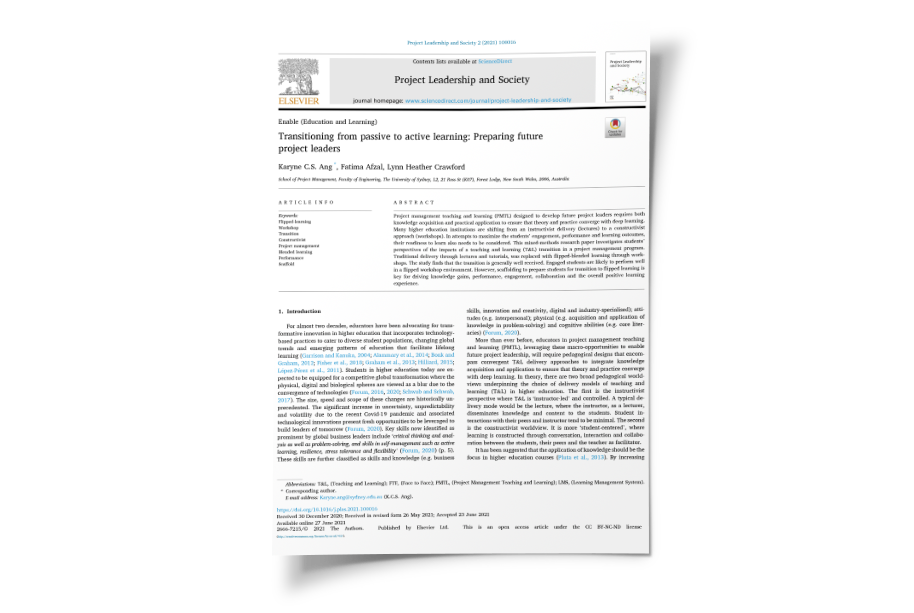Abstract
Project management teaching and learning (PMTL) designed to develop future project leaders requires both knowledge acquisition and practical application to ensure that theory and practice converge with deep learning. Many higher education institutions are shifting from an instructivist delivery (lectures) to a constructivist approach (workshops). In attempts to maximize the students’ engagement, performance and learning outcomes, their readiness to learn also needs to be considered. This mixed-methods research paper investigates students’ perspectives of the impacts of a teaching and learning (T&L) transition in a project management program. Traditional delivery through lectures and tutorials, was replaced with flipped-blended learning through workshops. The study finds that the transition is generally well received. Engaged students are likely to perform well in a flipped workshop environment. However, scaffolding to prepare students for transition to flipped learning is key for driving knowledge gains, performance, engagement, collaboration and the overall positive learning experience.
Potential Industry Impact
- Active engagement of employees is likely to improve overall team performance.
- Adaptability to new technologies, multi-modal communications and collaborative competencies are crucial for project managers in the contemporary workplace.
Academic Impact
- Project management discipline might foster project leadership in complex and uncertain times through innovative education design.

Authors:
Karyne Ang, Fatima Afzal, Lynn Crawford
Journal:
Project Leadership and Society, Volume 2 (2021)
Read:
https://doi.org/10.1016/j.plas.2021.100016


